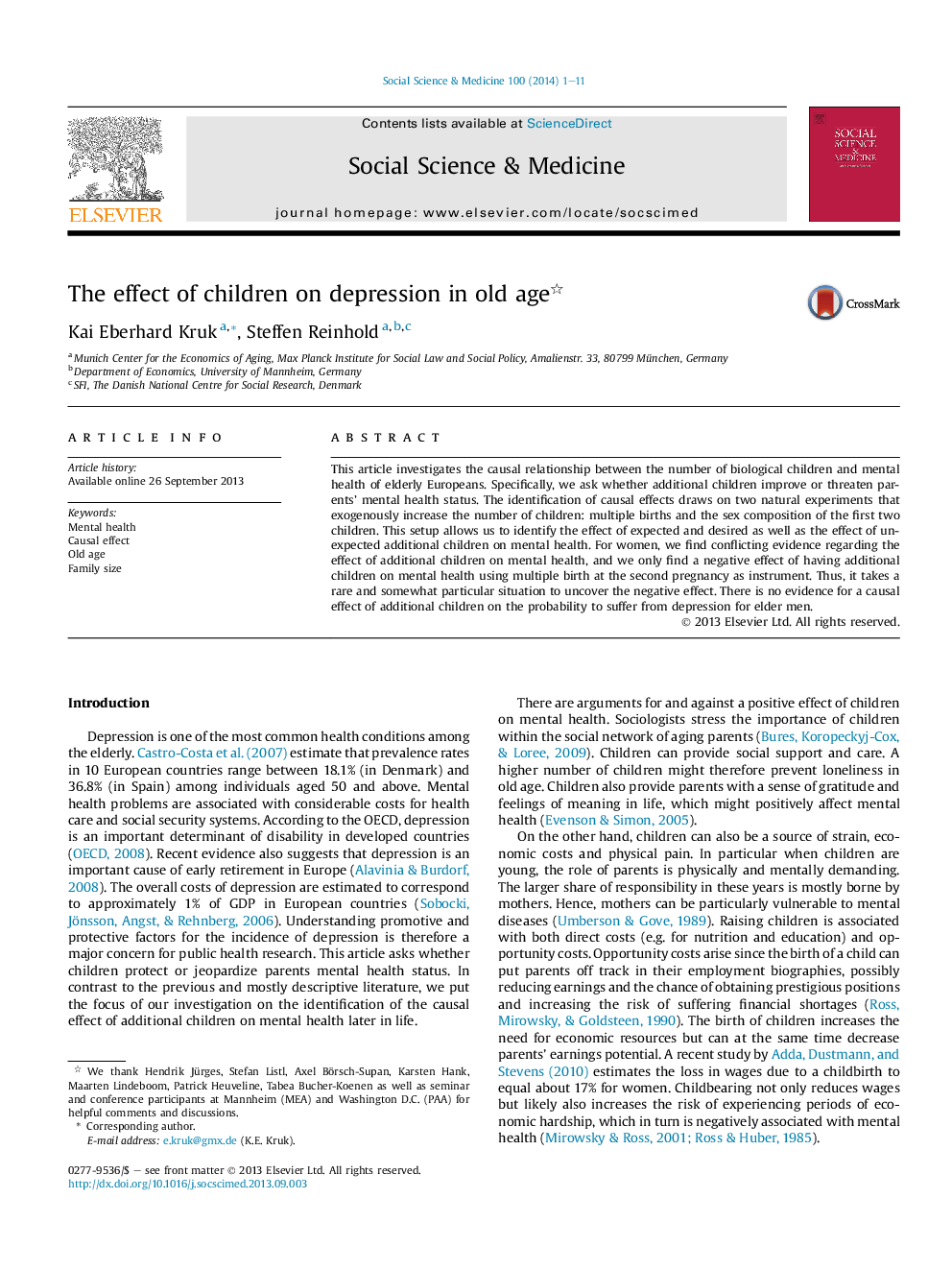| Article ID | Journal | Published Year | Pages | File Type |
|---|---|---|---|---|
| 7336095 | Social Science & Medicine | 2014 | 11 Pages |
Abstract
This article investigates the causal relationship between the number of biological children and mental health of elderly Europeans. Specifically, we ask whether additional children improve or threaten parents' mental health status. The identification of causal effects draws on two natural experiments that exogenously increase the number of children: multiple births and the sex composition of the first two children. This setup allows us to identify the effect of expected and desired as well as the effect of unexpected additional children on mental health. For women, we find conflicting evidence regarding the effect of additional children on mental health, and we only find a negative effect of having additional children on mental health using multiple birth at the second pregnancy as instrument. Thus, it takes a rare and somewhat particular situation to uncover the negative effect. There is no evidence for a causal effect of additional children on the probability to suffer from depression for elder men.
Related Topics
Health Sciences
Medicine and Dentistry
Public Health and Health Policy
Authors
Kai Eberhard Kruk, Steffen Reinhold,
